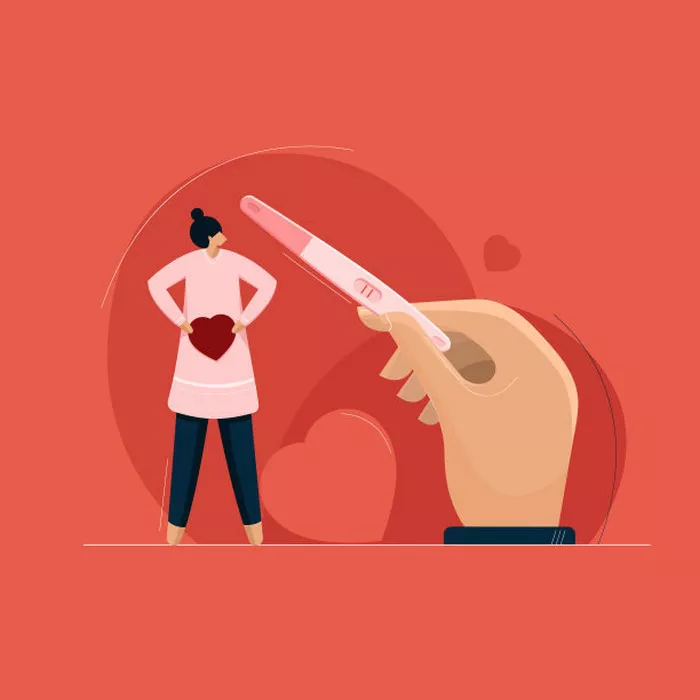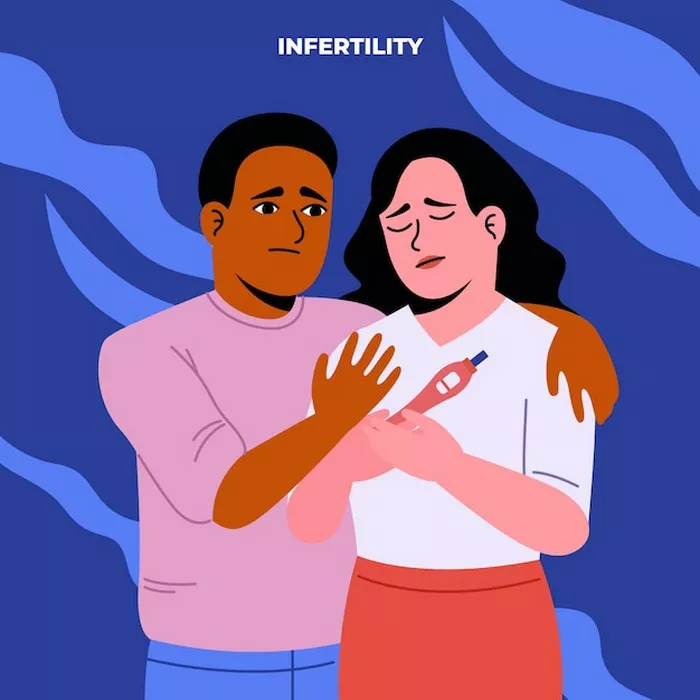Ovulation is a pivotal phase in the menstrual cycle of women, typically occurring midway through the cycle. It involves the release of a mature egg from the ovary, which is then available for fertilization by sperm. Ovulation marks the peak of a woman’s fertility window, lasting for about 12 to 24 hours.
Timing of Ovulation:
Ovulation generally occurs around day 14 of a 28-day menstrual cycle, counting from the first day of menstruation. However, this timing can vary among individuals and may be influenced by factors such as stress, illness, or hormonal imbalances. Women with shorter or longer menstrual cycles may ovulate earlier or later in their cycle, respectively. Understanding one’s unique menstrual cycle can help predict ovulation more accurately.
Signs and Symptoms of Ovulation:
Identifying the signs of ovulation can aid in pinpointing the fertile window for those trying to conceive. Here are the seven common signs and symptoms of ovulation:
1. Cramping or Pelvic Pain: Some women experience mild abdominal cramps or pelvic pain during ovulation, known as mittelschmerz. This discomfort typically occurs on one side of the lower abdomen and may last for a few hours to a couple of days.
2. Breast Tenderness: Hormonal changes associated with ovulation can cause breast tenderness or sensitivity. Breasts may feel swollen, tender, or even slightly painful to the touch.
3. Bloating: Hormonal fluctuations during ovulation can lead to bloating or a feeling of abdominal fullness. This sensation is often accompanied by water retention and mild weight gain.
4. Increased Libido: Some women experience a surge in libido or sexual desire around the time of ovulation. This heightened arousal is believed to be linked to hormonal changes, particularly an increase in estrogen levels.
5. Mood Changes: Ovulation can also impact mood, with some women reporting increased energy and vitality, while others may feel more irritable or emotional. These mood swings are attributed to hormonal fluctuations during the menstrual cycle.
6. Changes in Cervical Mucus: One of the most reliable signs of ovulation is changes in cervical mucus. As ovulation approaches, cervical mucus becomes clearer, stretchier, and more abundant, resembling the consistency of egg whites. This fertile cervical mucus facilitates sperm motility and survival, creating a conducive environment for fertilization.
7. Spotting or Light Bleeding: Some women may experience light spotting or bleeding during ovulation, known as ovulation bleeding. This phenomenon is caused by the rupture of the ovarian follicle as the egg is released. The spotting is typically light pink or brown in color and may last for a day or two.
How to Track Ovulation:
Several methods can help predict ovulation and identify the fertile window:
1. Basal Body Temperature (BBT) Tracking: Monitoring basal body temperature can reveal a slight increase (0.5 to 1 degree Fahrenheit) that occurs after ovulation. Tracking BBT involves taking your temperature every morning before getting out of bed and charting it on a graph to detect this shift.
2. Ovulation Predictor Kits (OPKs): These kits detect the surge in luteinizing hormone (LH) that precedes ovulation. By testing urine samples with an OPK, women can anticipate when ovulation is likely to occur, usually within 12 to 36 hours.
3. Menstrual Cycle Charting: Keeping a menstrual calendar and tracking cycle length, cervical mucus changes, and other ovulation symptoms can help predict fertile days. This method relies on observing patterns over several cycles to pinpoint ovulation.
Importance for Conception:
Recognizing the signs of ovulation is crucial for couples trying to conceive. By timing intercourse to coincide with the fertile window—typically the days leading up to and including ovulation—couples can maximize their chances of achieving pregnancy. Understanding ovulation patterns can also aid in diagnosing fertility issues and guiding appropriate interventions.
Irregular Ovulation:
Irregular ovulation, characterized by inconsistent or absent ovulation, can pose challenges for conception. Factors such as polycystic ovary syndrome (PCOS), thyroid disorders, or stress can disrupt ovulation patterns. Women experiencing irregular ovulation or difficulty conceiving should consult a healthcare provider for evaluation and personalized management options.
FAQs:
Q1: Can I get pregnant if I have intercourse right after ovulation?
A1: While the probability of conception decreases after ovulation, it is still possible to get pregnant for up to 24 hours post-ovulation due to the lifespan of sperm in the female reproductive tract.
Q2: Are there natural ways to boost fertility and regulate ovulation?
A2: Lifestyle factors such as maintaining a healthy weight, eating a balanced diet, managing stress, and avoiding tobacco and excessive alcohol can support regular ovulation and optimize fertility.
Q3: Can breastfeeding affect ovulation?
A3: Yes, exclusive breastfeeding can suppress ovulation and menstruation in some women, providing a natural form of contraception known as lactational amenorrhea. However, fertility can return unpredictably, so alternative contraceptive methods may be necessary.
Q4: How long does the fertile window last?
A4: The fertile window typically spans about 6 days, including the day of ovulation and the preceding days when sperm can survive in the reproductive tract awaiting the release of the egg.
Q5: Are there any medications that can help regulate ovulation?
A5: Fertility medications such as clomiphene citrate or letrozole may be prescribed to induce ovulation in women with ovulatory disorders, under the guidance of a fertility specialist.
Conclusion
In conclusion, understanding the signs of ovulation and employing effective tracking methods can empower individuals seeking to conceive. By leveraging this knowledge and seeking appropriate medical guidance for irregularities, couples can enhance their chances of achieving their desired pregnancy.


























